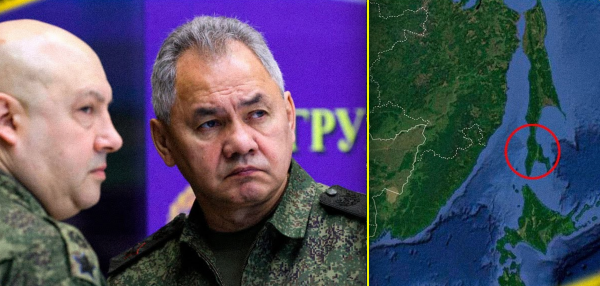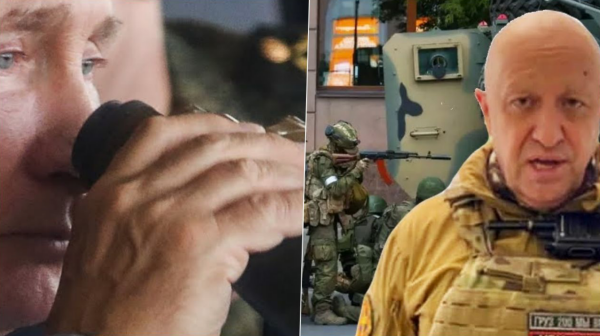You understand refusing to identify yourself is a crime, right? She meets his gaze with calm, steady eyes, but says nothing. Detective Marcus Wells takes over, attempting various interrogation techniques, friendly conversation, implied threats about federal charges, mentions of cooperation benefits. She responds with respectful silence to each approach.
Got ourselves a real mystery woman, jokes a deputy. Maybe she’s a Russian spy. Others laugh.
When left alone in her cell, subtle changes appear in her demeanor. She examines the room with measured precision, noting camera positions, identifying blind spots, timing guard rotations. Through her cell window, she carefully studies the building layout, marking emergency exits and security protocols.
Prints came back empty, Wells tells the sheriff. Nothing in local or state databases. Try federal, the sheriff suggests.
Systems down. Tech says we can try again tomorrow. A rookie officer brings her water.
As she accepts the cup, her sleeve rides up slightly, revealing a small, distinctive scar on her wrist, the kind of mark left by specialized training exercises involving rope descents from helicopters. That’s an interesting scar, the officer comments. Rock climbing accident, she replies, her first words in hours.
The public defender arrives late afternoon harried, overworked, annoyed. You’re making this much harder than it needs to be, he tells her after 20 minutes of getting nowhere. They’re talking about terrorist threats now.
The weapon you had isn’t registered anywhere. As they prepare her for arraignment the next morning, Wells notices something odd. Despite facing serious charges, despite the orange jumpsuit and handcuffs, she carries herself with unshakable calm.
Not the defiance of a career criminal or the fear of someone in trouble, but the patience of someone who knows something everyone else doesn’t. As deputies escort her to the courthouse van, she briefly glances toward the harbor where a naval vessel can be seen in the distance. For just a moment, the smallest change crosses her expression.
The Coastal Harbor Courthouse dates back to 1887. Its wooden benches and ornate railings speaking to a simpler time. Today, it’s packed beyond capacito-curious locals, reporters from Portland Papers, and unusually, several men in dark suits positioned strategically around the room.
Judge Eleanor Harmon looks irritated as she reviews the docket. At the defendant’s table, the woman sits quietly next to her frustrated public defender. Your Honor, I’d like to request a continuance, the defender says.
My client has been uncooperative, and I haven’t been able to prepare adequately. From the gallery, a man in a suit stands. Your Honor, I’m Special Agent Thomas from Homeland Security.
We’re requesting immediate transfer of the defendant to federal custody pending investigation of potential threats to national security. Before the judge can respond, another voice joins in. The FBI has jurisdiction here, Your Honor.
A different suited man approaches. We have reason to believe this relates to an ongoing investigation. The judge bangs her gavel.
Enough. This is still my courtroom. We will proceed with arraignment and then I will consider jurisdictional arguments.
The clerk reads charges. Possession of unregistered firearms. Refusal to identify to law enforcement.
Potential terrorist activity. The defendant remains impassive. Eyes focused forward.
Posture perfect. Detective Wells, seated in the front row, studies her with growing curiosity. Something about her doesn’t fit any profile he knows not.
Terrorist, not criminal, not mentally ill. How does the defendant plead? Judge Harmon asks. Before the public defender can answer, the heavy oak doors at the back of the courtroom swing open.
Every head turns as a Navy admiral in full dress uniform walks in, medals gleaming under the fluorescent lights. Two officers flank him, equally formal in their appearance. The gallery falls silent.
Without announcement or permission, the admiral walks directly down the center aisle. Military veterans throughout the room instinctively stand at attention. Even the judge straightens her posture.
The admiral approaches the bench and hands a sealed document to the bailiff, who delivers it to Judge Harmon. As she breaks the seal and reads, her expression shifts from annoyance to surprise to grave understanding. After a long moment, she looks up.
In light of this documentation from the Department of Defense, all charges against the defendant are dismissed effective immediately. This case is classified as a matter of national security. She bangs her gavel with finality.
Court is adjourned. The room erupts in confused murmurs as the admiral approaches the defendant. The bailiff quickly removes her handcuffs.
For the first time, the woman speaks clearly, her voice carrying authority despite its softness. Sir, I apologize for the inconvenience. The admiral’s response silences the room.
On the contrary, commander, the Navy apologizes to you. At the word commander, every military person present including two bailiffs, several observers, and even Agent Thomas Knapp to perfect attention in obvious respect. Detective Wells watches in amazement as the woman’s entire demeanor transforms.
No longer attempting to be invisible, she stands tall, shoulders squared, the deliberate military bearing now unmistakable. Without the intentional posture of ordinariness, she suddenly commands the room just as powerfully as the admiral. Judge Harmon, herself a former JAG officer, now stands and offers a respectful nod to both the admiral and the woman.
Thank you for your understanding, your honor, the admiral says. Commander Hayes has been operating under classified orders. The situation required discretion.
Outside the courthouse, reporters clamor for information as the woman now changed into civilian clothes provided by the Navy officers, stands beside the admiral near a black government SUV. Sheriff Daniels approaches them, confusion and respect battling on his face. Admiral, with all due respect, my department deserves some explanation.
We’ve been treating this as a potential terrorist threat. Sheriff, I understand your concern, the admiral replies. Commander Hayes is one of our most decorated special operators.
The details of her assignment remain classified, but I can assure you she poses no threat to your community. Quite the opposite. Detective Wells steps forward.
Commander, I owe you an apology. She meets his eyes directly now, no longer hiding behind careful blankness. No apology necessary, detective.
You were doing your job. An elderly man in a VFW cap approaches cautiously. Excuse me, ma’am.
I was a corpsman with the Marines in Desert Storm. Been sitting in that courthouse all morning. I knew there was something familiar about the way you carried yourself.
He extends his hand. Thank you for your service, whatever it is you do. The woman shakes his hand firmly.
Thank you for yours. The admiral checks his watch. Commander Hayes, we should proceed.













